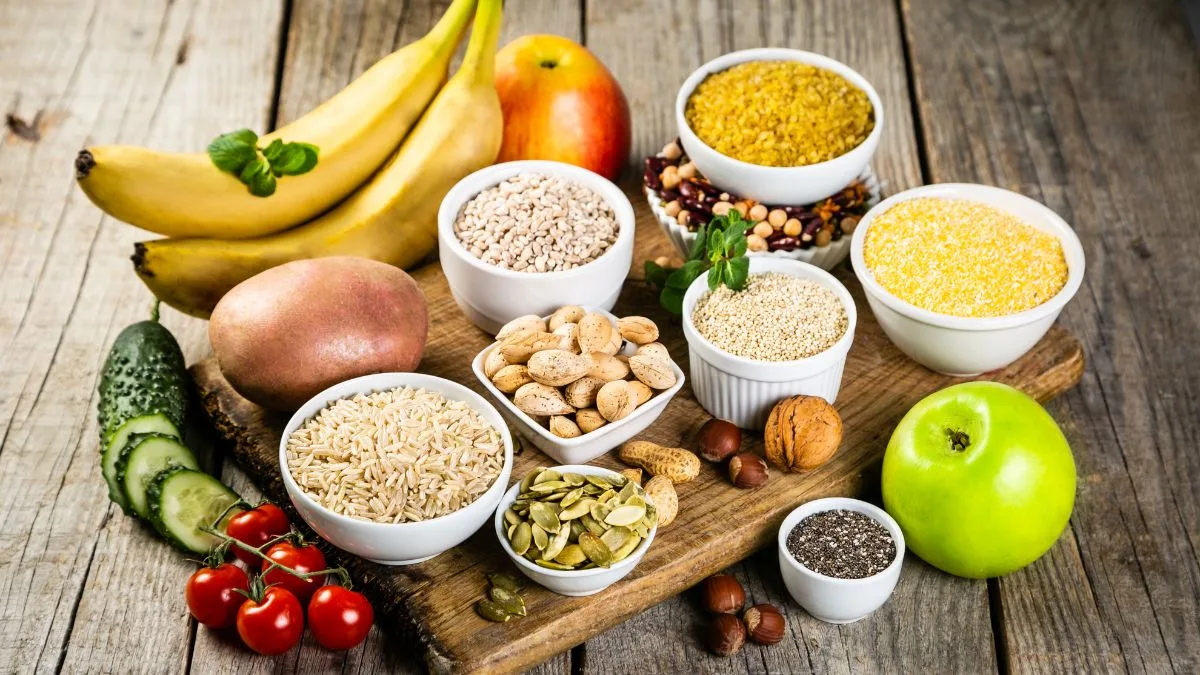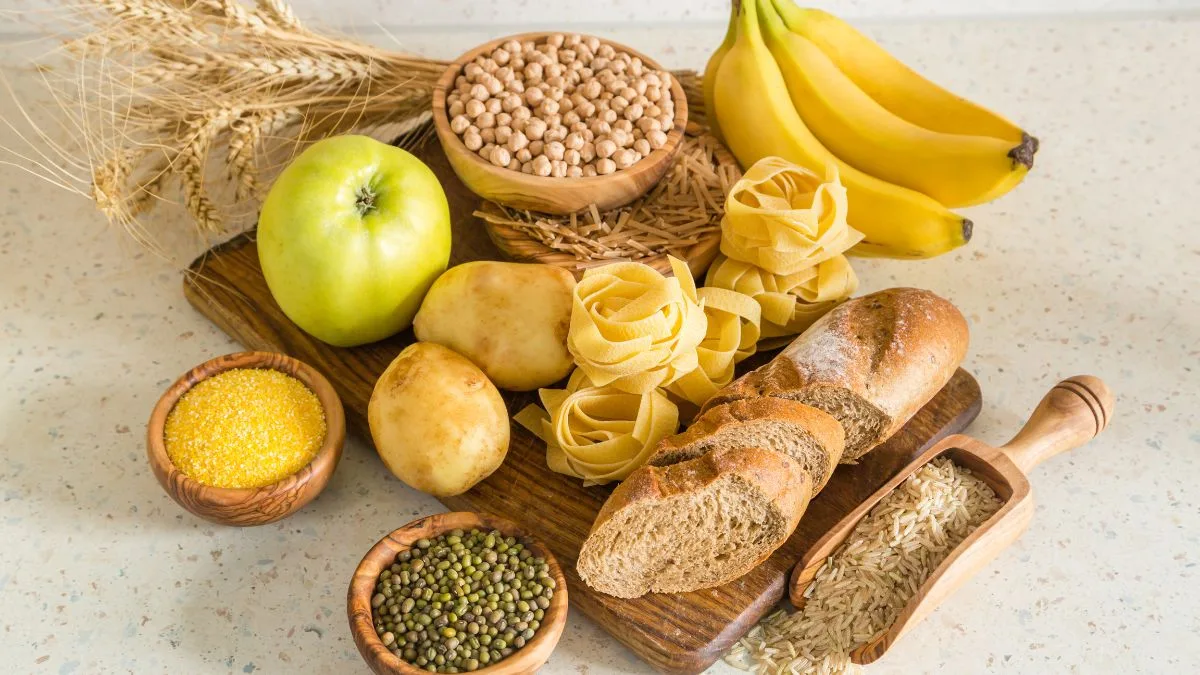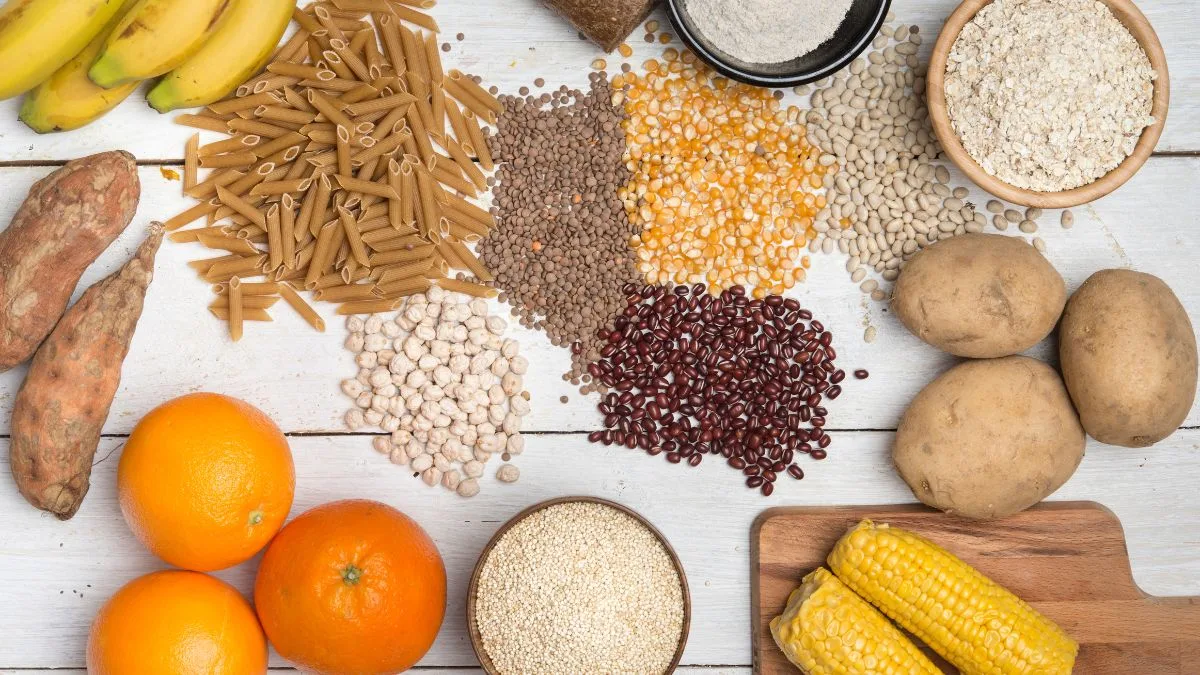● Short Answer: Yes, whole grain carbohydrates are healthier than refined grains due to their fiber, nutrients, and slower glucose release.
Introduction
Picture this: you’re standing in the grocery store aisle, staring at two loaves of bread.
One screams “whole grain” while the other looks perfectly white and fluffy.
You’re probably wondering this because everywhere you look, nutrition experts are preaching about whole grains being superior, but you want to know the real science behind this claim.
What Makes Whole Grains Different From Refined Grains?
The difference lies in what happens during processing.
Whole grains contain all three parts of the grain kernel: the bran, germ, and endosperm.
Refined grains get stripped of the bran and germ, leaving only the starchy endosperm behind.
This process removes about 75% of the grain’s nutrients, including B vitamins, fiber, and healthy fats.
When you eat brown rice instead of white rice, you’re getting 3.5 grams of fiber per cup versus just 0.6 grams in white rice.
✪ Fun Fact: The word “refined” in food processing actually means “stripped of nutrients.”
How Do Whole Grains Affect Your Blood Sugar?
Here’s where the magic happens in your body.
Whole grains have a lower glycemic index compared to their refined counterparts.
The fiber in whole grains slows down digestion, preventing those sharp blood sugar spikes that make you feel energized one moment and crashed the next.
For example, white bread has a glycemic index of 75, while whole grain bread sits at around 51.
This means your pancreas doesn’t have to work overtime pumping out insulin, which helps prevent insulin resistance and type 2 diabetes over time.
✪ Pro Tip: Pair whole grains with protein or healthy fats to further slow glucose absorption.
Why Do Whole Grains Support Better Digestion?
Your digestive system thrives on fiber, and whole grains deliver it in abundance.
The insoluble fiber in whole grains adds bulk to your stool and speeds up transit time through your intestines.
Meanwhile, soluble fiber feeds your beneficial gut bacteria, creating short-chain fatty acids that nourish your colon cells.
In my opinion, this is why people who switch from white rice to brown rice often notice improved bowel regularity within just a few days.
A single cup of cooked quinoa provides 5.2 grams of fiber, while the same amount of white pasta gives you only 2.5 grams.
✪ Note: Increase whole grain intake gradually to avoid digestive discomfort.
Can Whole Grains Help With Weight Management?
Absolutely, and here’s the science behind it.
Whole grains require more energy to digest than refined grains, a process called the thermic effect of food.
The fiber content also increases satiety, meaning you feel full longer after eating whole grain foods.
Research shows that people who eat three servings of whole grains daily have 2.4% less belly fat than those who eat refined grains.
When you choose steel-cut oats over instant oatmeal, you’re getting a breakfast that will keep you satisfied for 4-5 hours instead of leaving you hungry again in 2 hours.
✪ Pro Tip: Replace refined grains with whole grains gradually, starting with one meal per day.
Which Whole Grains Should You Choose?
Not all whole grains are created equal, so let me guide you through the best options.
Quinoa stands out as a complete protein, containing all nine essential amino acids your body can’t make.
Steel-cut oats provide beta-glucan fiber, which specifically helps lower cholesterol levels.
Brown rice offers selenium and manganese, while buckwheat provides rutin, a powerful antioxidant.
In my opinion, rotating between different whole grains throughout the week ensures you get the widest variety of nutrients possible.
✪ Fun Fact: Amaranth was considered so nutritious that the Aztecs used it as currency.
Wrapping Up
Whole grain carbohydrates are definitively healthier than refined grains because they provide sustained energy, better digestion, and superior nutrition while supporting long-term health goals.
Start your whole grain journey today by swapping one refined grain in your diet, and feel free to share your experience or ask questions about making this transition work for your lifestyle.
References
At NutritionCrown, we use quality and credible sources to ensure our content is accurate and trustworthy. Below are the sources referenced in creating this article:
- Wiley Online Library: Whole Grains and Health: A Comprehensive Review
- PMC: Whole Grain Consumption and Risk of Cardiovascular Disease
- PMC: Health Benefits of Whole Grain Consumption
- Healthline: 9 Health Benefits of Eating Whole Grains
- Harvard Health: Reaping Gains from Grains
- Mayo Clinic: Carbohydrates: How carbs fit into a healthy diet




